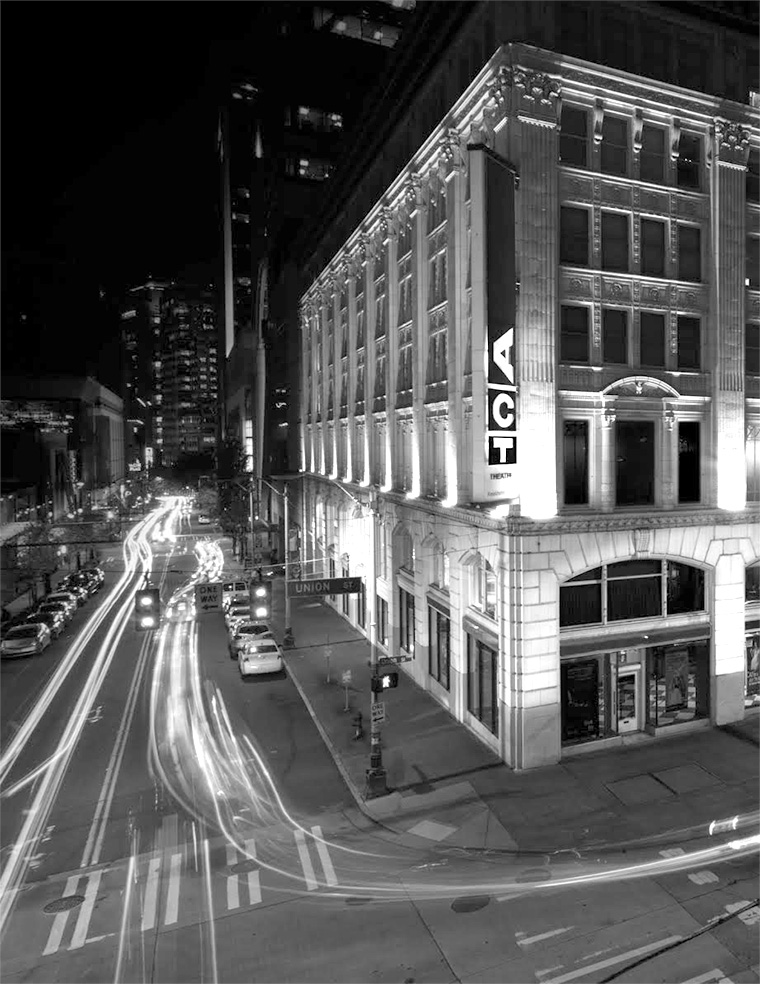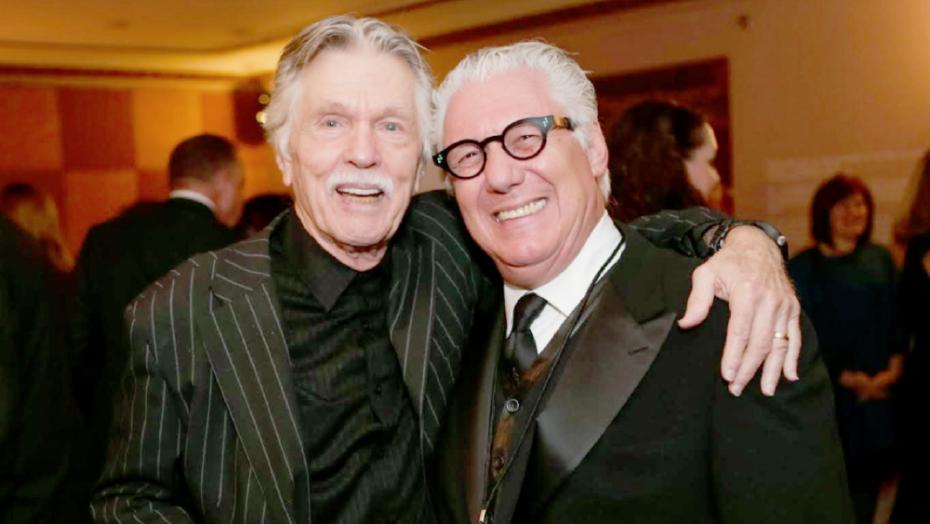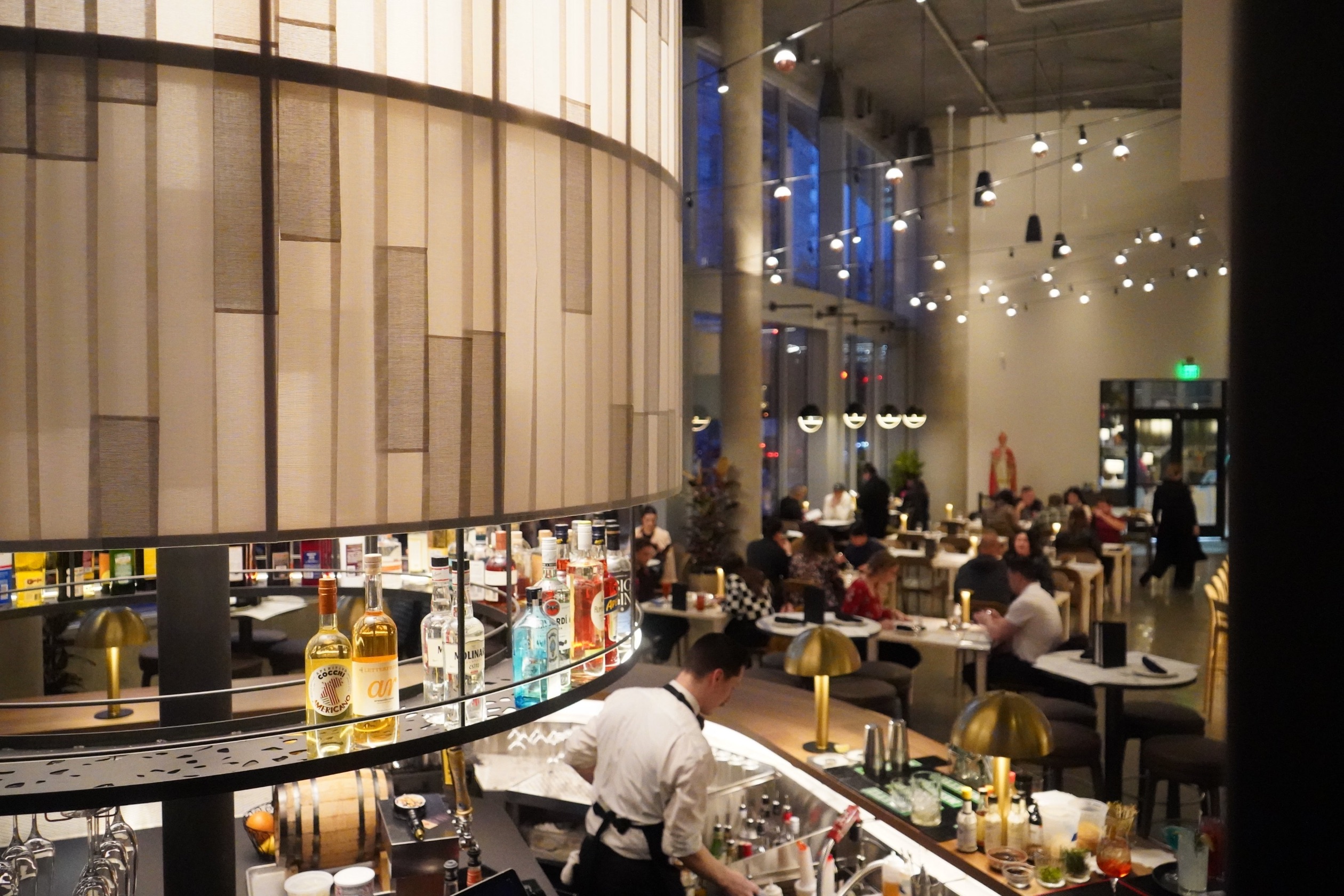Charming, energetic and passionate about the arts, Gian-Carlo Scandiuzzi has been a shot in the arm for Seattle’s ACT Theatre since he joined the staff in 2007.
Initially, Scandiuzzi ran ACT’s Central Heating Lab, which supports new works and theatrical talents. In 2008, he took over as ACT executive director, a position he holds today.
But Scandiuzzi’s resume doesn’t stop there. In fact, it encompasses enough career highlights for two or three individuals. Over the decades, this artist and arts advocate has been a stagehand, actor, music producer, independent film promoter, savvy businessman and arts philanthropist.
Scandiuzzi was born and raised in Geneva, the son of Italian immigrants. “My father first took me to the opera when I was 12,” he said. “I saw Rigoletto, still my favorite opera today.”
Inspired by the story-telling and grandeur of opera, he studied directing and acting at the theater conservatory in Geneva. When he was 19, he met his future wife, Eulalie, a Seattle native living in Geneva. After a yearlong courtship, they married and moved to Seattle a few years later.
Scandiuzzi could speak little English but he was able to leverage his theater training into a stagehand position at the Empty Space Theatre. His first acting role, also at Empty Space, was playing Carlo in The Return of Pinocchio. During that production, he met fellow actor Kurt Beattie and started a friendship that endures to this day.
In 1979, Scandiuzzi and several others began Modern Productions which presented punk-rock shows at Seattle’s historic Showbox theater. “We put on bands that no one ever heard of, like DNA or D.O.A.,” said Scandiuzzi. “But we also presented big acts like Iggy Pop, Devo, the Police, Nina Hagen and the Ramones.”

Introducing seminal punk-era music to local rock fans helped inspire and re-energize Seattle’s sleepy music scene. “It was around this time that Seattle started to explode,” said Scandiuzzi, “not only on the music scene, but with restaurants, hotels, films, theater.”
Several years later, Scandiuzzi decided to return to his first love—acting—and moved to Los Angeles to try to make it in the movies. He quickly found out what so many had before him: Making a living in Hollywood is extremely difficult.
Back in Seattle, he turned his attention to movie production, founding a company called UFO which produced action and science fiction films. With that experience in hand, he went on to create IndieFlix with fellow producer Scilla Andreen.
Called the “Netflix of independent film” by Variety Magazine, IndieFlix works with independent filmmakers to provide a distribution channel without the middleman. Today it offers film lovers access to more than 8,000 high-quality films from around the world.
“Our mission at IndieFlix was to give filmmakers the opportunity to generate money up front,” said Scandiuzzi. “They got 70 percent and we’d take 30 percent. We’d put their movies out there, and they’d get a quick return. This is very different from what usually happens with film distribution.”
In 2007, Scandiuzzi’s career came full circle when his friend Kurt Beattie, now artistic director at ACT Theatre, called. At that time, ACT was having serious financial difficulties, beset by the same problems facing regional theaters everywhere: spiraling production costs, an aging subscriber base and a lack of connection with younger audiences. Enter on cue: Gian-Carlo Scandiuzzi.
Hired first to run ACT’s Central Heating Lab, Scandiuzzi partnered with local artists and fringe companies to offer great theater and keep ACT’s stages busy. “We provided resources to these smaller companies, such as box office or production support, and they contributed bold ideas and excellent art, “said Scandiuzzi. “We saw it not as a rental proposition but as a co-production. In return, our theater became more of a lively and dynamic cultural arena.”
This approach, now called ACTLab, has been wildly successful. In two years, ACT went from offering 12 productions to 48.
Today, serving as ACT executive director, Scandiuzzi continues to celebrate the arts and make them more affordable. “I wanted to break down barriers to access,” said Scandiuzzi. “You say you can’t afford the theater? Well, ACT has a true pay-what-you-can performance. Contribute anything from 50 cents to 50 dollars. There is no longer any excuse.”
Scandiuzzi also pioneered the ACTPass to engage with younger audiences. “Young people want to go to the theater this weekend, not in three months,” he explained. “The traditional subscription model does not work for them.” The ACTPass is a membership-based program. For $30 a month, members can see any or all productions, any day of the week. It now serves as a model for other theaters around the country.
Throughout his wide-ranging and distinguished career, Scandiuzzi credits his Italian heritage as providing a touchpoint. “Italians have a tremendous need to savor beauty,” he said. “I celebrate my Italian-ness through my quest in the arts. I may have been raised in Switzerland, but when I go to Italy, I know I am home.”































